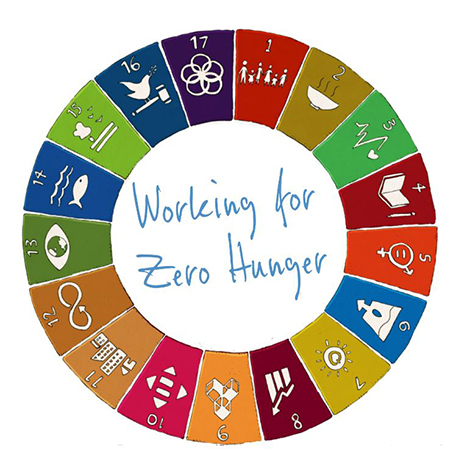… Over 122 million more people are facing hunger in the world since 2019 with Africa being worse hit
The report, “The State of Food Security and Nutrition in the World”, for 2023 has revealed that increased urbanization as a ‘megatrend’ is now affecting how and what people eat in relation to the policymaking of governments on agrifood systems across the world.
Meanwhile, the report revealed that over 122 million more people are facing hunger in the world since 2019 due to the pandemic and repeated weather shocks and conflicts, including the war in Ukraine, according to the latest State of Food Security and Nutrition in the World (SOFI) report published jointly by five United Nations specialized agencies.
The State of Food Security and Nutrition in the World is an annual report jointly prepared by the Food and Agriculture Organization of the United Nations (FAO), the International Fund for Agricultural Development (IFAD), the United Nations Children’s Fund (UNICEF), the World Food Programme (WFP) and the World Health Organization (WHO).
This report also revealed that between 691 and 783 million people faced hunger in 2022, with a mid-range of 735 million. This represents an increase of 122 million people compared to 2019, before the COVID-19 pandemic.
It is now evidenced that almost seven in ten people are projected to live in cities by 2050, governments and others working to tackle hunger, food insecurity, and malnutrition must seek to understand these urbanization trends and account for them in their policymaking.
The report also revealed that Africa remains the worst-affected region with one in five people facing hunger on the continent, more than twice the global average. While global hunger numbers have stalled between 2021 and 2022, there are many places in the world facing deepening food crises.
However, progress in hunger reduction was observed in Asia and Latin America, but hunger was still on the rise in Western Asia, the Caribbean, and throughout all subregions of Africa in 2022.
FAO Director-General, QU Dongyu as quoted in the statement from FAO noted that recovery from the global pandemic has been uneven, and the war in Ukraine has affected nutritious food and healthy diets.
“This is the ‘new normal’ where climate change, conflict, and economic instability are pushing those on the margins even further from safety. We cannot take a business-as-usual approach”, Dongyu stated.
FAO further revealed that food insecurity affects more people living in rural areas. Moderate or severe food insecurity affected 33 percent of adults living in rural areas and 26 percent in urban areas.
Children’s malnutrition also displays urban and rural specificities: the prevalence of child stunting is higher in rural areas (35.8 percent) than in urban areas (22.4 percent). Wasting is higher in rural areas (10.5 percent) than in urban areas (7.7 percent), while overweight is slightly more prevalent in urban areas (5.4 percent) compared to rural areas (3.5 percent).
In his thoughts on effective policy-making, IFAD President, Alvaro Lario noted that a world without hunger is possible.
“What we are missing is the investments and political will to implement solutions at scale. We can eradicate hunger if we make it a global priority. Investments in small-scale farmers and in their adaptation to climate change, access to inputs and technologies, and access to finance to set up small agribusinesses can make a difference.
“Small-scale producers are part of the solution. Properly supported, they can produce more food, diversify production, and supply both urban and rural markets – feeding rural areas and cities nutritious and locally grown food.’’
The report recommended that to effectively promote food security and nutrition, policy interventions, actions, and investments must be guided by a comprehensive understanding of the complex and changing relationship between the rural-urban continuum and agrifood systems.
This year’s theme is aligned with the UN General Assembly “New Urban Agenda” and will complement and guide the discussions at the 2023 High-Level Political Forum – particularly on sustainable cities and communities (SDG 11), and especially during the three-day ministerial segment of the forum which will hold from 17 to 19 July 2023, in the lead-up to the SDG Summit in September.
Source: FAO
Do you want to share your impact stories or pitch the coverage of your CSR event to us? E-mail: editor@impactwatch.net or *Phone +234-806-795-0250 (Whatsapp &Text)





